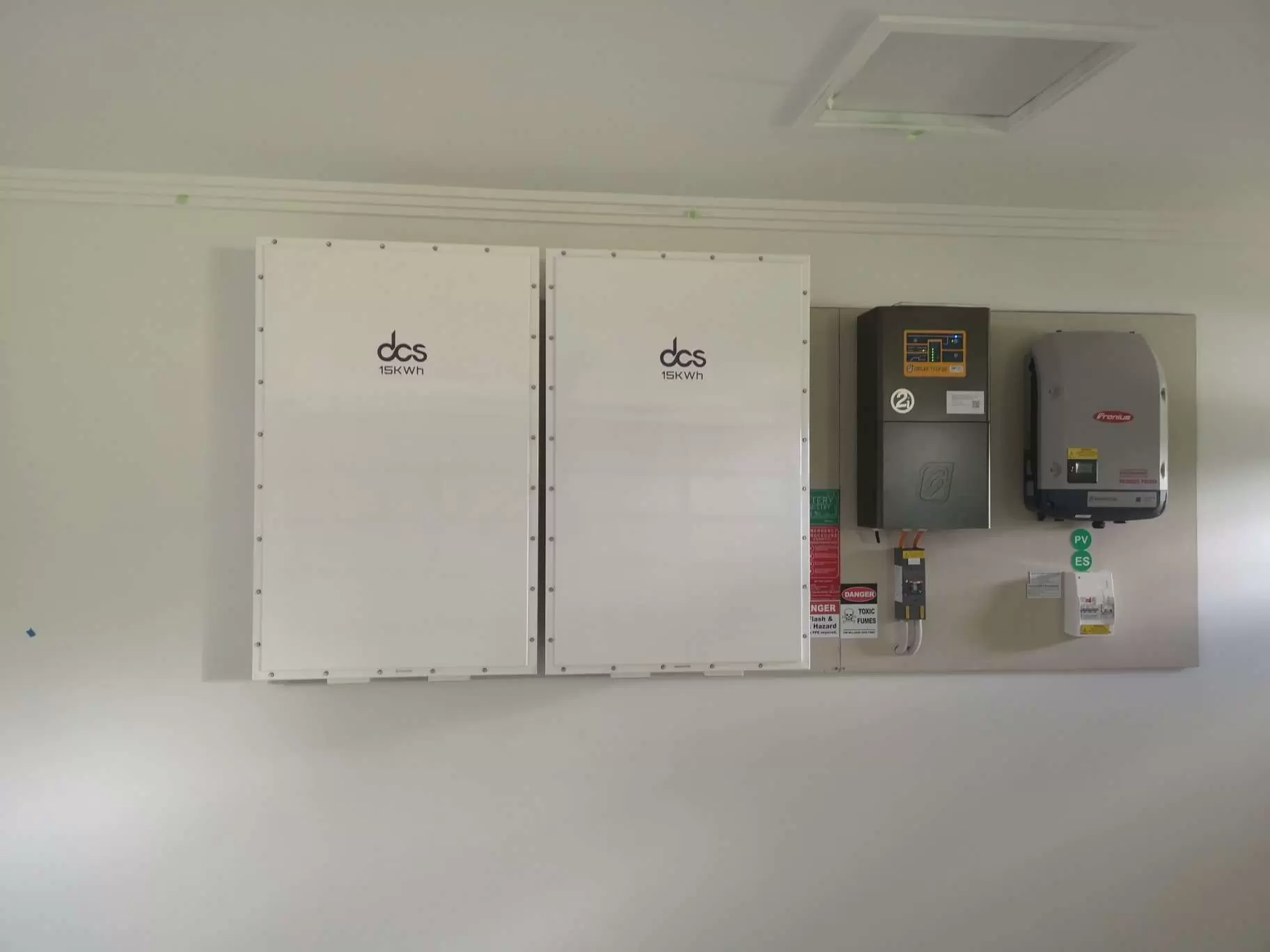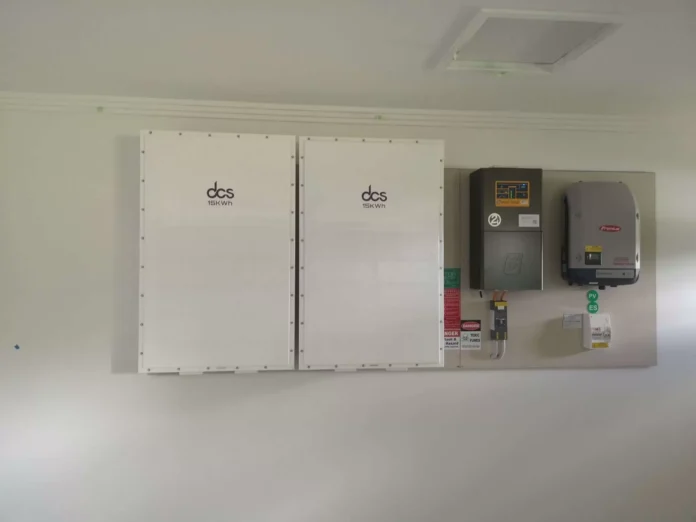Solar power stands out as a beacon of hope for a sustainable future in the world of renewable energy. However, harnessing the sun’s energy is only part of the equation. For those choosing to live off the grid, the choice of battery to store this precious power is crucial. This blog post delves into the Best batteries for off grid solar power, shedding light on the options available to ensure a reliable and efficient power supply when you’re far from the nearest grid connection.
Understanding the Basics
Off-grid solar power systems operate independently of the national electricity grid, providing a self-sufficient energy source. Such systems comprise a series of components, including solar panels, inverters, charge controllers, and batteries for energy storage. Solar panels are pivotal in capturing solar energy, transforming sunlight into direct current (DC) electricity.
Inverters convert This DC electricity into alternating current (AC) electricity, making it suitable for powering household appliances. Given the intermittent nature of solar energy, with its availability fluctuating with the time of day and weather conditions, batteries become indispensable.
They store excess electricity generated during peak sunlight hours, ensuring a continuous power supply by releasing stored energy when solar input is unavailable. This balance between generation, storage, and usage is key to maintaining a reliable energy supply in off-grid setups, empowering residents to live independently of the utility grid.
Role of Batteries in Off-Grid Solar Power Systems
In off-grid solar power setups, batteries are the linchpin that ensure continuity of power. Their primary function is to store surplus energy generated during optimal sunlight hours, thus guaranteeing electricity is available even when sunlight is not. This ability to bank energy is pivotal, especially during nights or overcast days, enabling a seamless power supply.
The choice of battery significantly influences the overall efficiency and reliability of the power system. It’s vital to select a battery that not only possesses the capacity to meet the household’s energy demands but also exhibits durability against the rigours of continuous charge and discharge cycles characteristic of off-grid living.
This resilience is fundamental in maximising the system’s operational lifespan, thereby underlining the critical role batteries play in sustaining the autonomy of off-grid residences. Their selection is a balancing act, considering factors such as energy capacity, lifecycle, and environmental impact, which collectively determine the system’s efficiency and the homeowner’s peace of mind.
Lead-Acid Batteries: The Traditional Choice
Lead-acid batteries have long served as the stalwart for off-grid solar systems, cherished for their proven reliability and more modest initial outlay. These batteries split into two principal categories: the maintenance-intensive flooded lead-acid (FLA) and the maintenance-free sealed lead-acid (SLA), encompassing both AGM (Absorbent Glass Mat) and Gel varieties.
FLA batteries necessitate regular upkeep, such as replenishing distilled water, a routine that ensures optimal functioning over time. On the other hand, SLA batteries, though typically commanding a higher price and offering a somewhat reduced lifespan compared to their FLA counterparts, dispense with the need for regular maintenance.
This dichotomy presents a choice between upfront costs and ease of use, with both types playing a pivotal role in off-grid systems. Their enduring presence in the market underscores a balance of cost-efficiency and dependable performance, making lead-acid batteries a viable option for those embarking on off-grid living, despite the advent of newer technologies.
 Lithium-Ion Batteries: The Modern Solution
Lithium-Ion Batteries: The Modern Solution
Lithium-ion technology has emerged as a forefront solution in energy storage, especially appealing for those engaging in off-grid living. These batteries are lauded for their superior energy density and operational efficiency, which are paramount in maximising the utility of solar power.
This resilience significantly reduces the frequency of replacements, thereby offsetting their higher initial cost over time. Moreover, their compact design and lighter weight offer additional advantages, particularly when space saving and ease of installation are considered priorities.
Their adoption has been further facilitated by decreased prices over recent years, making them an increasingly accessible option for a broader audience. The performance benefits and long-term economic advantages render lithium-ion batteries a compelling choice for those invested in creating a sustainable and efficient off-grid living environment.
Batteries for off grid solar power: An Eco-Friendly Alternative
Batteries for off grid solar power represent a groundbreaking shift towards environmentally friendly energy storage solutions. These batteries utilise a saline solution as an electrolyte, a significant departure from the toxic chemicals found in traditional batteries.
Non-Toxic Materials
One of the paramount advantages of saltwater batteries is their use of non-hazardous materials, making them safer for both users and the environment.
Recyclability
These batteries boast a high level of recyclability. The components can be easily and safely recycled at the end of their lifecycle, reducing landfill waste.
Lower Environmental Impact
Their manufacturing process has a considerably lower carbon footprint than lithium-ion and lead-acid batteries, cementing their status as a green option.
Maintenance
While offering a competitive lifespan, saltwater batteries require minimal maintenance, making them a practical choice for remote or difficult-to-access installations.
Temperature Tolerance
Demonstrating resilience in varying temperature conditions, saltwater batteries operate efficiently across various climates.
This unique combination of features positions saltwater batteries as a compelling choice for individuals prioritising sustainability alongside energy independence.
Comparing Battery Lifespan and Efficiency
Evaluating the performance and longevity of batteries is paramount for those residing off-grid. Lithium-ion units stand out for their exceptional efficiency, with minimal energy loss (only 5-10%) during storage, making them markedly superior to lead-acid batteries, which experience a 15-20% loss.
Saltwater batteries present a viable alternative, offering lifespans comparable to lithium-ion, though they do not quite match in energy density. This comparison highlights the technological advancements in lithium-ion and saltwater batteries, positioning them as preferable for individuals seeking efficient and durable solutions for off-grid solar power systems. Their enhanced performance metrics solidify their status as the go-to options for those prioritising energy reliability and system longevity.
Calculating Your Energy Needs and Storage Capacity
A meticulous calculation of your daily energy consumption is essential to select the most appropriate battery for your off-grid system. Begin by compiling a comprehensive inventory of all your electrical devices, noting their wattage and the duration of use per day. This step is crucial for estimating your total daily power usage.
Additionally, factor in the seasonal fluctuations in solar irradiance, as this will influence the amount of energy your solar panels can harvest and, consequently, how much storage capacity you’ll require. Planning for days of autonomy is another critical consideration.
Calculating this aspect accurately is paramount to ensuring that your battery bank is adequately sized to meet your energy demands consistently, without the risk of falling short during critical times.
The Importance of a Proper Battery Management System (BMS)
A Battery Management System (BMS) plays a pivotal role in safeguarding and optimising the performance of battery banks in off-grid solar power systems. This sophisticated system meticulously oversees the charging and discharging processes, ensuring batteries operate within their safe limits.
This factor is particularly crucial for lithium-ion and saltwater batteries representing considerable investments. Moreover, it performs cell balancing within the battery pack, a critical function that maintains uniformity in charge levels across all cells, thereby preventing premature battery failure due to imbalance.
The incorporation of a BMS into an off-grid system not only enhances the reliability of the power supply but also contributes to the overall efficiency of the energy storage setup. In essence, integrating a proper Battery Management System is indispensable for maintaining the health of the battery bank, optimising energy use, and ensuring the sustainability of off-grid living arrangements.
Innovative Batteries: Exploring Emerging Options
The relentless pursuit of more advanced energy storage technologies has catalysed the emergence of several promising battery types. Solid-state batteries are noteworthy, renowned for their potentially higher energy densities and enhanced safety features when juxtaposed with conventional lithium-ion batteries.
These batteries leverage a solid electrolyte, which mitigates the risks associated with liquid electrolytes and paves the way for greater efficiency and longevity. Concurrently, exploring flow batteries unveils a different paradigm in energy storage.
While these technologies are still in the nascent stages of commercial deployment, particularly for residential off-grid applications, they signal a significant shift towards more versatile and potentially transformative energy storage solutions. The ongoing research and development in this arena underscore a commitment to overcoming limitations and unlocking new possibilities for off-grid energy systems.
The Future of Off-Grid Battery Technology
The outlook for those embracing off-grid lifestyles is increasingly optimistic, underscored by rapid strides in battery technology. Innovations are refining the efficiency and durability of storage options and steering the sector towards more ecologically sound solutions.
These novel approaches offer the potential for higher energy densities, greater safety profiles, and extended lifespans, which could dramatically enhance the autonomy and sustainability of off-grid systems. Furthermore, the shift towards integrating renewable materials and processes in battery manufacture heralds a greener and more sustainable approach to energy storage.
As they look ahead, the evolution of battery technology is set to play a pivotal role in empowering individuals to live more independently and sustainably, with an ever-decreasing environmental footprint. The commitment to innovation within the sector signals a future where off-grid living is viable and at the forefront of eco-friendly advancements.
FAQs
1. What’s The Best Battery For Off-Grid Solar Power Systems?
The “best” battery largely depends on your needs, including energy capacity, budget, and environmental considerations. Lithium-ion batteries are highly recommended for their efficiency and longevity, whereas saltwater batteries offer an eco-friendly alternative with minimal maintenance.
2. How Long Do Off-Grid Solar Batteries Last?
Battery lifespan varies by type: lithium-ion can last between 5,000 to 7,000 charge cycles, lead-acid typically ranges from 300 to 1,500 cycles, and saltwater batteries offer lifespans comparable to lithium-ion but with lower energy densities.
3. Can Off-Grid Batteries Be Recycled?
Most off-grid batteries, especially saltwater and lithium-ion, have recyclable components. The process varies, so consult with the manufacturer or a recycling centre specialising in battery disposal.
4. Do I Need A Battery Management System (BMS) For My Off-Grid Setup?
Absolutely. A BMS is essential for prolonging battery life, ensuring safety, and optimising the performance of your battery bank, particularly with lithium-ion and saltwater batteries.
5. Are There Emerging Battery Technologies Suitable For Off-Grid Living?
Yes, innovations such as solid-state and flow batteries promise higher efficiency and safety. While still under development, these technologies could significantly impact the future of off-grid energy storage.
Conclusion
Choosing the right battery for an off-grid solar power system is a cornerstone that significantly influences the efficiency, reliability, and sustainability of living away from the grid. From the traditional reliability of lead-acid batteries to the modern efficiency and longevity of lithium-ion batteries, and the eco-conscious promise of saltwater batteries, the options are as varied as they are compelling. Each type of battery brings its own set of benefits and considerations, making it essential to weigh these against your specific energy needs, environmental values, and budgetary constraints. As technology advances, the emergence of solid-state and flow batteries presents an exciting future, potentially offering higher energy densities and safety profiles.
| Other Good Articles to Read |
| Blogs-Nation |
| Blogs-Peoples |
| Bryan Smith Blogs |
| intellect blogs |
| the fault in our blogs |
| blogs eu |
| oz forums |
| recruitment blogs |
| zet blogs |
| id blogs |
| Blog Studio legale |
| blogs map |
| Related Business Listings |
| Contact Directory |
| Local Business Profiles |

